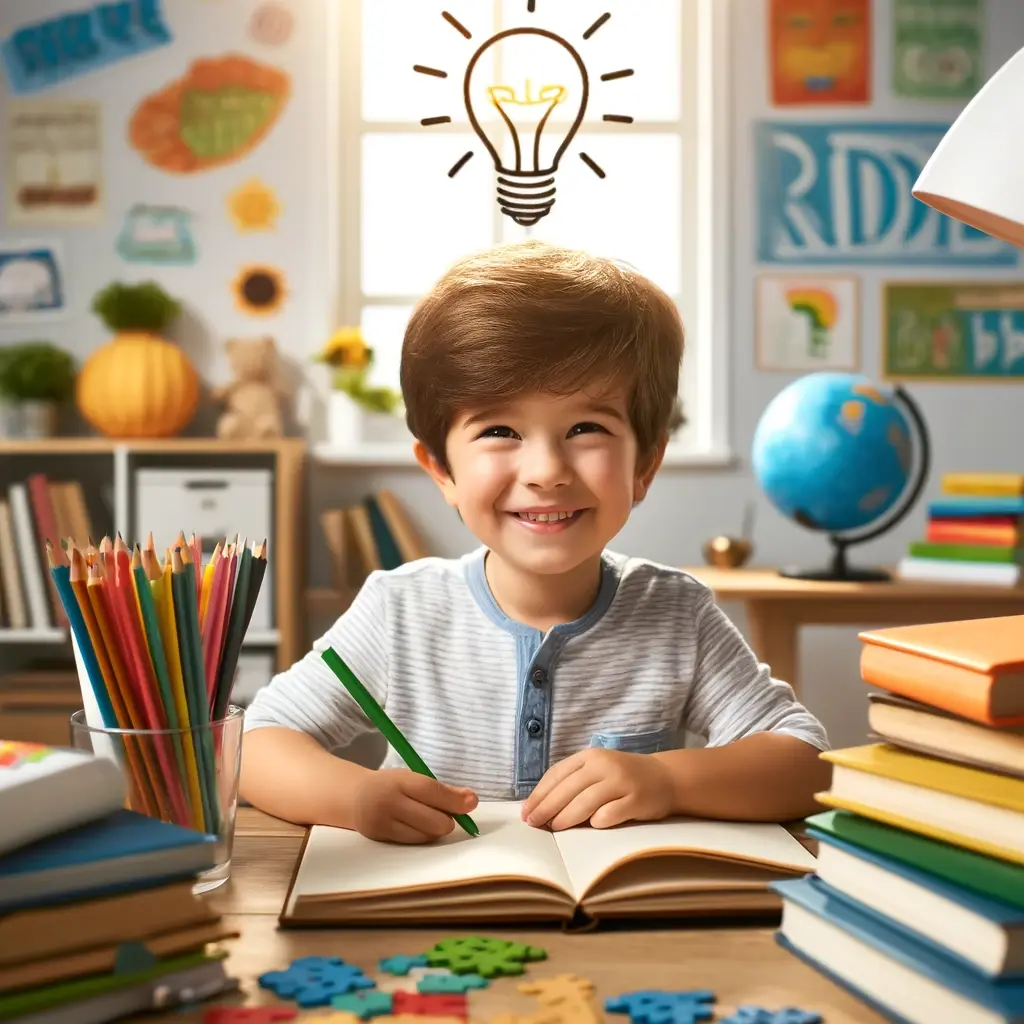 Although many children can read, the act of reading and the act of comprehending what you read are two very different things. Reading requires the fluent parsing and blending various phonetic sounds to create words. Reading Comprehension, on the other hand, involves thinking about the words that were just read and deriving a meaning, for just those words and the text as a whole! In simpler terms, reading comprehension is the ability to read, understand, process, and recall what was just read.
Although many children can read, the act of reading and the act of comprehending what you read are two very different things. Reading requires the fluent parsing and blending various phonetic sounds to create words. Reading Comprehension, on the other hand, involves thinking about the words that were just read and deriving a meaning, for just those words and the text as a whole! In simpler terms, reading comprehension is the ability to read, understand, process, and recall what was just read.
Reading Comprehension > 'Reading'
Well, without proper comprehension skills, students lack the ability to understand what they read. The point of reading isn't to make sounds in your brain or out loud, but rather, to understand important lessons, stories and arguments. Through the act of writing, our ancestors have recorded important knowledge that we can understand simply by reading. By understanding what we read, we pick up important information, understand scientific theories, past opinions and new frontiers. (In layman's terms, it is through reading that we no longer have to 'discover' gravity, or the independence of 182 nations with every new generation).
Having excellent reading comprehension skills is crucial. It increases the enjoyment and effectiveness of reading and helps not only academically, but professionally, and in a person's personal life. Imagine, for example, that your boss gives you a complicated document: you can read the words, but you cannot understand what the document is telling you. What then, is the point of being able to 'read,' if it can't help you move forward?
Reading Comprehension is Everywhere
Many parents make the mistake of assuming Reading Comprehension only influences English / Language Arts. However, comprehension is crucial for basic survival in the education system. Through passages and word problems, the requirement to comprehend what you read is omnipresent in every student's life, from Math Class to History.
Science: Children read and learn about many scientific related topics throughout K-12. Proper reading comprehension will have them read and understand facts about animals, plants, the Solar System, the scientific method, and many more.
Math: Children are given word problems a lot in mathematics. Without reading comprehension skills, children will struggle determining what is actually being asked and said.
History: Children are taught about many significant leaders and events throughout history like Abraham Lincoln, The Constitution, and the American Civil War. In order for children to succeed at reading about history, they must understand what is being said. Reading Comprehension will help them understand and process the information in the text.
Building Reading Comprehension
Overwhelmed by the far-reaching implications of Reading Comprehension? Don't be! Comprehension is actually quite simple to build. However, it will require daily, active involvement from a parent or guardian, where you guide your child through the thought processes that underly understanding any text.
- Daily Reading Practice: All children should spend at least half-hour daily, reading with a loved one. Not only does this foster a positive relationship with reading, but it also allows you to model the cognitive steps required to comprehend what is read.
(Seriously, we can't emphasize this enough. The research out there is endless -- every child requires daily reading at home to succeed). - Check for Understanding: Whether you are reading, or your child is reading, ask key comprehension questions, periodically, while reading. Doing this not only helps you see if they are understanding what is being read, but it also teaches them what questions they should be asking themselves as they read.
Before Starting
-Look at the Cover & Title! What do you think this book will be about?
-Do you know anything about this topic?
-What types of characters do you think will be in the story?
During
Stop periodically (every paragraph or page) and ask:
-"Who?"
-"What just happened?"
-"Where?"
At key points, you can also ask "How did it happen?" and "Why did it happen?"
As you progress through the story, make sure that your child is holding on to the story by asking "What has happened so far?"
Teach them to predict / imagine / hypothesize by asking "How do you think the character will handle the situation?"
Also, clear their doubts and give them a voice in your daily reading practice by asking “Is there anything you are wondering right now?”
After:
Check to see if your child understood the text by asking
-“What was the main message in the story/text?”
-“Tell me the story in your own words”
“What were the most important events in the story?” - Make connections. As you and your children read aloud, share experiences you have had that relate to the story and have them share theirs. Not only does this build an interest in reading, but it grounds them in the idea that there is something common and shared in the act of reading, and it invests them in the story.
- Create a visual. Sometimes children have a hard time visualizing what they just read. Help your children visualize by describing the scene, characters, and plot. You can even ask them what they are visualizing and have them draw in pencil, pen, markers, or colored pencils. They will be involved and creating their own story, which will help them get a clearer understanding of what is happening.
- Make inferences and predictions. Making inferences and predictions goes hand-and-hand with asking questions. Inferring is the ability to take clues and given knowledge from a text and conclude what will happen next. To help them infer, ask them to predict what might happen next in the story
“What does the author want you to think about?”
“Why do you think the character did ______?”
“What do you think will happen next?”
“If the story had a sequel, what do you think it would be about?” - Fix any type of confusion. It is important to go back and re-read as soon as your child seems confused! Make sure you are tracking your child's comprehension progress. The moment they can't answer one of your questions, whether it's at the first sentence or in the middle, or maybe even at the end, back up and re-read!
Genie Academy offers a range of after-school programs focused on enhancing skills in mathematics, literacy, composition, and coding. These educational services are available at various sites across New Jersey, such as Plainsboro, East Brunswick, Marlboro, South Brunswick, and South Plainfield, and are designed to cater to the learning needs of children from Pre-Kindergarten to 8th grade. Learn more about our Hillsborough ELA tutoring classes, and sign up your child for a free assessment.
References:
Montgomery, Courtney. "How to Improve Reading Comprehension: 8 Expert Tips." How to Improve Reading Comprehension: 8 Expert Tips. PrepScholar, 25 June 2016. Web. 10 Oct. 2017.
Osewalt, Ginny. "6 Tips for Helping Your Child Improve Reading Comprehension." Understood.org. Web. 10 Oct. 2017.






